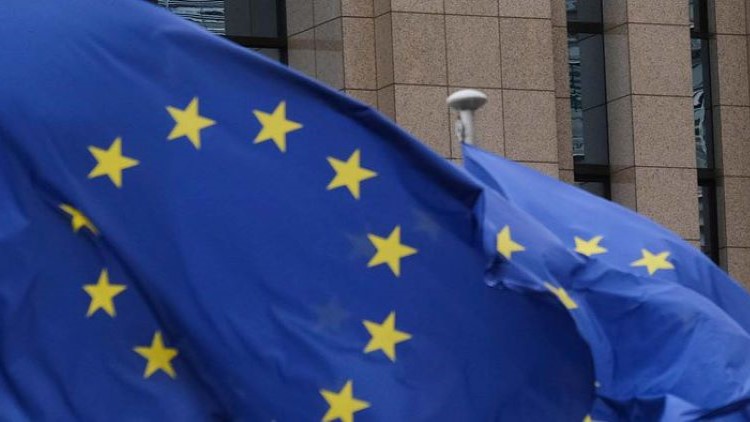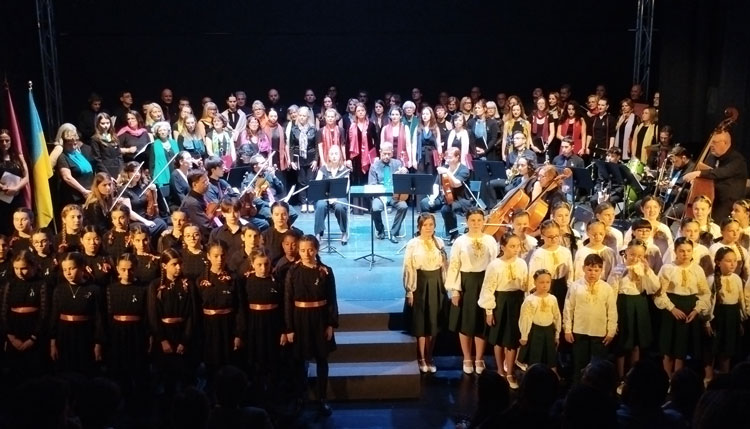The Diplomat
The European Commission (EC) yesterday reproached the European Broadcasting Union for prohibiting the entry of the EU flag into the Eurovision Song Contest held last Saturday in Malmö (Sweden).
Criticism of the attitude of the organizers of the festival, which took place in the midst of great controversy over Israel’s intervention, came yesterday from the mouth of the chief community spokesman, Eric Mamer; and the vice president responsible for European Lifestyle, the Greek Margaritis Schinas, after complaints from people who were prevented from accessing the final of the contest carrying the EU flag.
Mamer described as “regrettable” the decision of the Eurovision organizers to ban the community flag “which is – he said – the flag of all the members of the EU and other members of the Council of Europe that participate in the contest and which is often flown next to the national flags on public buildings”.
The chief spokesperson for the European Commission indicated that they did not have information on the reasons that led the organizers to make that decision, so Brussels cannot establish that the ban on the blue flag with twelve stars is “related to other events.”
“This is not an event organized by the European Union. We can make our opinion known. We can certainly encourage the EBU to understand that this is a mistake, and then it is their decision how to proceed,” he added.
For his part, on the social network X, vice president Margaritis Schinas criticized the organizers’ decision, stating: “Eurovision is above all a celebration of the European spirit, of our European diversity and talent. The EU flag is a symbol of this. With less than a month to go until the European elections, there should be no obstacles, big or small, to celebrating what unites all Europeans.”
Dorin Frăsîneanu, advisor to the European liberal party ALDE, denounced on Saturday on the social network X that he had been denied entry to the final with the community flag. “Security has told us it is ‘political’ and ‘not allowed.’ How can the European Broadcasting Union ban the EU flag at Europe’s biggest event,” he asked.
Later speaking to Euronews, Frăsîneanu explained what happened: “We approached the stadium and, while we were queuing to go through security, they asked my friends and I to show which flags we had. We, of course, showed the EU flags we had and the security told us that it was not allowed to enter with them, and that it was a political flag.”
“Honestly,” he added, “we were shocked and horrified. The security officer, however, was very polite and said that, unfortunately, there was not much he could do, that the EBU had given them a photo with all the flags allowed there. Indeed , the EU flag was not there.
For its part, the EBU also told Euronews that the flag policy had been agreed with Swedish media outlet ‘SVT’, host of this year’s contest, but stressed that this did not include an explicit provision to ban EU flags.
“In previous years, such as in 2023, the ‘SVT’ policy was to allow the flags of participating countries and rainbow flags. There has never been an express ban on the EU flag in the rules,” said a spokesperson for the EBU.
“Due to rising geopolitical tensions, the flag policy was more rigorously enforced for security at this year’s event.”
Following these statements, the spokesman for the European Executive, Eric Mamer, counterattacked by saying that it was not the EBU’s task to make statements about the geopolitical situation and the impact it “may or may not have” on the participants.
“I would say more: it is precisely when the geopolitical situation is complicated that we must defend our values: the values of freedom, cultural diversity and understanding between peoples,” Mamer added. “I don’t think it’s the right time to stop people from expressing their values with the European flag, for example.”







